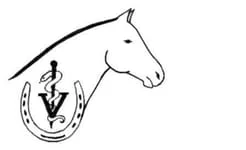Congratulations, your mare will soon be foaling! In preparation for this exciting event, we would like to review the foaling process so you will be more confident in knowing when all is well or when you may need to contact your veterinarian for help. Be comforted in knowing that the great majority or mares foal without any complications, but be prepared to know when intervention may be necessary.
Preparation for foaling
- Most mares will show a distinct increase in mammary gland size in the last 2 weeks of pregnancy. A marked distention of teats with colostrum will usually occur 24-48hrs prior to foaling. During these last days you may also note a waxy substance at her teat ends (“waxing up”).
- The first milk the mare produces is a thick yellow tinged milk known as colostrum. Colostrum contains antibodies that gives the foal an immediate immune system to fight infection. The foal must nurse/ consume the colostrum in its first 12 hours of life.
- Some mares will leak a very small amount of milk up to one (1) week prior to their delivery date. If this leakage is persistent, she may be losing her colostrum. You should contact your veterinarian to discuss whether the milk should be saved for the foal.
Foaling
- Mares deliver quickly. Once active contractions begin, the foal should be born within 30 minutes.
- Typically the foals nose and 1 to 2 feet will present first. The foal’s nose will be wet and slimy but should be free to any obstructing membranes. If a film or membrane is seen covering the nostrils, tear them open to allow the foal to breath.
- If your mare is not making good progress in delivery the foal or the foal’s orientation in the birth canal appears abnormal, call your veterinarian immediately.
- DON’T cut the umbilical cord! Let the mare and foal tear the cord naturally, which will reduce the amount of bleeding and the possibility of an infection. After the foal is standing, dip the umbilicus in a tincture of iodine or chlorohexadine solution.
The Newborn Foal
Remember the 4 HOUR RULE of thumb for newborn foals. The following should have occurred within the first 4 hours post foaling:
1. The foal is on his/her feet
2. The foal has nursed
3. The placenta has passed
These are the essential steps for a healthy start to life. Please contact your veterinarian if any of the above has not occurred with in the first 4 hours after foaling.
It is strongly recommended to have your veterinarian examine your foal at approximately 24 hours of life. A general exam will be performed and a blood test can evaluate the foal’s immune status.
REASONS TO CALL YOUR VETERINARIAN
During Foaling
- Mare has not delivered the baby after 30 minutes of active pushing or the mare is not making good progress in this time.
- Foal has an abnormal appearance. For example: too weak to stand, leg abnormalities that make it difficult to stand or nurse or the foal is covered with a brown material (meconium staining).
- Foal is not on its feet or has not nursed within 4 hours. (Do not assume the foal is nursing because you hear sucking. Look and be sure the foal has the teat in their mouth.)
- Mare has not passed her placenta within 4 hours of birth.
First Week of Life
- Foal is acting abnormal. For example: dull, lethargic or not nursing well. A normal foal will nurse about 7-10 times per hour.
- Fever. A foal normal temperature is 99-102.0 F
- Increased or abnormal breathing
- Diarrhea. Not to be confused the normal mustard colored meconium (feces) or the loose stool noted during the mares first heat cycle at or around 9-14 days post foaling.
- A lame foal or any swelling of the joints.
- Abnormalities of the umbilicus. Including thickening of the stump, pain at the stump, urine or pus at the stump. THE STUMP SHOULD BE DRY!
- Straining to urinate or passing bloody urine.
- Straining to defecate but not producing any feces.
- Signs of colic.
